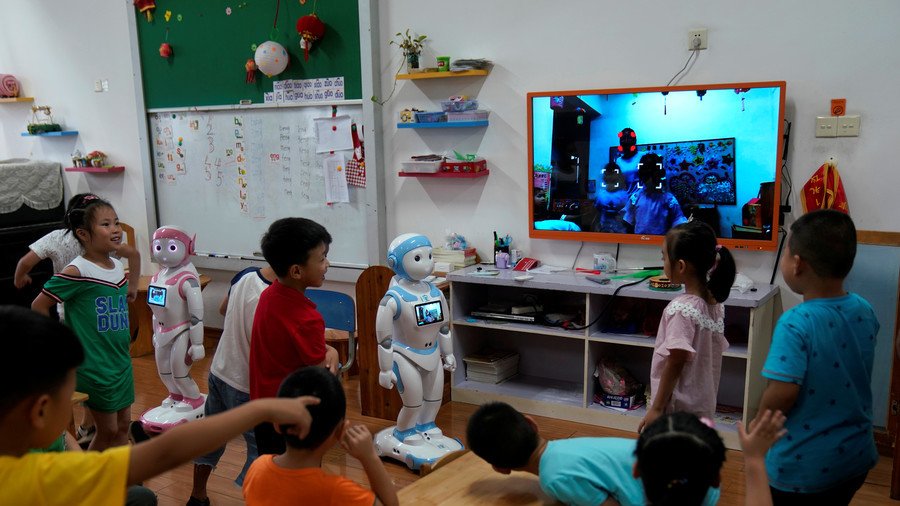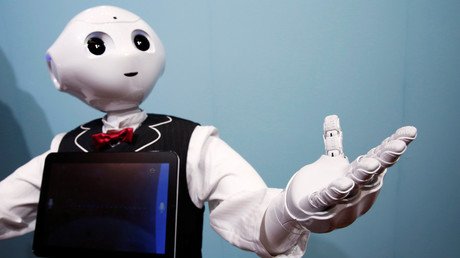Robots have power to brainwash children & alter their behavior, study finds

Robot pressure could soon replace peer pressure as a chief concern amongst parents with new research finding that children can be significantly influenced by machines, even when the droids are obviously wrong.
The study asked children aged between seven and nine to look at a screen showing four lines and identify which two match in length. When they carried out the simple task alone the kids got the answers right almost every time. However, when they did it alongside a robot their accuracy dropped by 12 percent and almost all of their wrong answers were found to match those of the robot.
READ MORE: World’s first Hindi humanoid showcases spiritual side (VIDEO)
Writing in Science Robotics, the University of Plymouth researchers behind the study said the findings raise concerns around the potential for robots to have a negative influence on vulnerable children.
“People often follow the opinions of others and we’ve known for a long time that it is hard to resist taking over views and opinions of people around us. We know this as conformity. But as robots will soon be found in the home and the workplace, we were wondering if people would conform to robots,” one of the scientists behind the study, Professor in Robotics Tony Belpaeme, explained.
“What our results show is that adults do not conform to what the robots are saying. But when we did the experiment with children, they did. It shows children can perhaps have more of an affinity with robots than adults, which does pose the question: what if robots were to suggest, for example, what products to buy or what to think?”
READ MORE: Halting the robo-pocalypse? Elon Musk & tech leaders pledge never to make lethal AI
The researchers cautioned that a discussion needs to take place around what protections need to be put in place to minimise the danger to children as robots become more widespread.
Professor Noel Sharkey, who heads the Foundation for Responsible Robotics, responded to the research on Twitter.
“If robots can convince children that false information is true, the implication for the planned commercial exploitation of robots for childminding and teaching is problematic,” he said.
Like this story? Share it with a friend!















